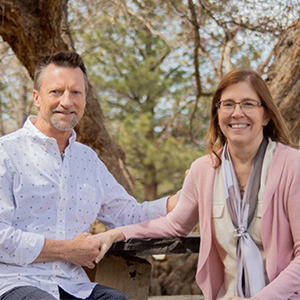In my last blog, I described the adverse childhood experiences which often cause Complex-PTSD. Having C-PTSD can cause adults to experience anxiety, depression, drug or alcohol abuse, physical ailments and even a shorter lifespan. That’s the bad news. What is the good news?
C-PTSD Can Be Treated
I (Lisa) recently attended a three day training on how therapists can treat C-PTSD which was given by Dr. Eric Gentry of the Arizona Trauma Institute. Dr. Gentry has been studying trauma and counseling trauma survivors for over 20 years.
Complex trauma survivors are not crazy, they are afraid. Because their primary caregivers were not trustworthy, they learned that the world is not a safe place. Dr. Gentry notes that childhood traumatic experiences are encoded in the body with terror, causing C-PTSD survivors to be constantly tense. A tense body sends a message to the brain that the person is not safe, causing hyper-vigilance. In order to release this tension, the survivor will need to learn to relax the body.
Learning Self-Regulation
When I work with complex trauma survivors, I teach them to regulate their emotions by learning to regulate their bodies. First, I ask them to do a quick body scan from head to toe, noticing any muscles that are tense. I then suggest they become a “wet noodle,” and release all the muscles in the body at once. Clients may need to do this multiple times a day in order to train their bodies to relax. Once their body is relaxed, they are able to think more clearly, and react to circumstances that come their way with the logical part of their brain.
Learning Relaxation
Self-regulation can be done instantly in the moment of stress. In order to further their relaxation, I teach additional relaxation techniques. These differ from self-regulation in that a client must take a few minutes to step out of regular life to consciously relax the body and mind. There are several techniques for teaching relaxation:
- Guided visualization (going to a safe space)
- Conscious, slow breathing
- Grounding
- Container box
- Specific exercises, like yoga and Trauma Releasing Exercises (TRE).
Trauma Processing
Once clients are able to self-regulate and learn relaxation techniques, many of their emotional and physical issues resolve. If they still have intrusive thoughts that continue to bother them, we can begin processing these difficult memories if the client is willing.
Next Steps
If you would like to be free of the trauma of your childhood, working with a therapist who has been trained in treating trauma is a good idea. At Restored Hope, we would love the opportunity to work with you to find a happier future. Give us a call today.




My C-PTSD is something I’d love to work on.
We would love to work with you